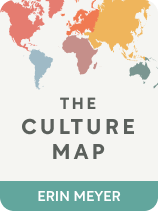

This article is an excerpt from the Shortform book guide to "The Culture Map" by Erin Meyer. Shortform has the world's best summaries and analyses of books you should be reading.
Like this article? Sign up for a free trial here .
What is the difference between a “peach” and a “coconut” culture? How do peach and coconut cultures approach personal disclosure?
The peach/coconut model describes how different cultures indicate the depth of their relationship. People from peach cultures seem friendly on the outside but difficult to know on the inside. In contrast, people from coconut cultures may seem cold and unapproachable on the outside, but once you get to know them, you can build a deep, personal relationship with them really fast.
Keep reading to learn more about peach and coconut cultures, according to cultural communication expert Erin Meyer.
Peach vs. Coconut Cultures
One reason that establishing effective cross-cultural relationships is so difficult is that different cultures approach personal disclosure in different ways. In her book The Culture Map, Erin Meyer cites a common model for dividing cultures into two types: peach and coconut cultures.
The peach/coconut model appears to have been influenced by the “specific v. diffuse” dimension of Trompenaars’s model of national cultural differences. This dimension describes how readily people share their private lives. But the model is a cultural communication framework that describes several other dimensions of cultural difference, including how people deal with each other, how they view their environment, and how they perceive time.
Peaches are soft on the outside but have a hard pit. Similarly, citizens of peach cultures are outwardly friendly. However, they can be incredibly hard to get to know because they protect their true selves in a “hard pit” reserved for a select few. Other cultures may feel cheated by peaches, because they’ve shared so much of themselves and think they’re developing a close relationship when the peach doesn’t think it’s close at all. Peach cultures include the United States (a cognitive culture) and Brazil (a personal culture).
A coconut has a hard shell. But crack it, and you’ll be rewarded with its soft inner meat. Similarly, people from coconut cultures seem initially distant, especially to foreigners. It takes time to get to know them. But once you crack the shell, you can develop a long-lasting, deep relationship with them. Coconut cultures include Russia (a personal culture) and Germany (a cognitive culture).
In The Culture Map, Meyer describes how peach and coconut cultures have different social norms. For example, asking how you met your husband is acceptable in peach cultures but unacceptable in coconut cultures. She recommends that coconuts learn how peach culture works in order to avoid feeling cheated. In contrast, peaches should feel free to act normally when sharing themselves but refrain from asking any potentially intrusive questions.

———End of Preview———
Like what you just read? Read the rest of the world's best book summary and analysis of Erin Meyer's "The Culture Map" at Shortform .
Here's what you'll find in our full The Culture Map summary :
- The eight axes you can use as a framework to analyze cultural differences
- How to better relate to those of another culture to accomplish business goals
- How the Vikings have more gender equality than we see today






